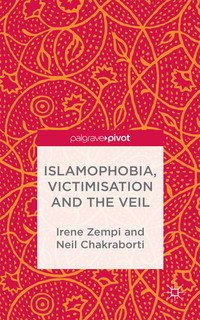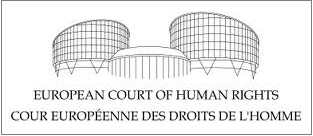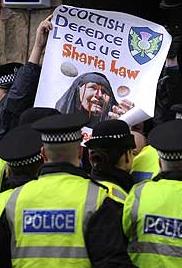 A new study has found the true extent to which veiled women bear the brunt of anti-Muslim abuse in the UK. Led by the University of Leicester it offers a unique insight into the experiences of veiled Muslim women as victims of Islamophobia, and the impact of this victimisation upon their families and wider Muslim communities.
A new study has found the true extent to which veiled women bear the brunt of anti-Muslim abuse in the UK. Led by the University of Leicester it offers a unique insight into the experiences of veiled Muslim women as victims of Islamophobia, and the impact of this victimisation upon their families and wider Muslim communities.
Islamophobia, Victimisation and the Veil is a new book by Irene Zempi and Neil Chakraborti from the University of Leicester.
Irene said: “In a post-9/11 climate, veiled Muslim women are vulnerable to Islamophobic attacks in public because they are easily identifiable as Muslims. As with other forms of hate crime, Islamophobic victimisation falls under the police and local authority ‘radar’. The fact that it is such an under-reported phenomenon and under-researched topic means that victims of Islamophobia often suffer in silence.
“Our research reveals how Islamophobic victimisation is experienced as ‘part and parcel’ of wearing the veil, rather than as isolated ‘one-off’ incidents, and how repeat incidents of supposedly ‘low-level’ forms of hostility such as name-calling, persistent staring and other types of intimidatory behaviour place a potentially huge emotional burden on victims.
“The actual and potential threat of Islamophobic abuse and violence has long-lasting effects for veiled Muslim women, making them afraid to leave their house.”

 The Government should press on with banning the veil in Britain after a French law doing the same was
The Government should press on with banning the veil in Britain after a French law doing the same was  A ban on people wearing clothing that covers their face in public, like a burqa or niqab, may find its way to Denmark following a landmark decision at the European Court of Human Rights on Tuesday.
A ban on people wearing clothing that covers their face in public, like a burqa or niqab, may find its way to Denmark following a landmark decision at the European Court of Human Rights on Tuesday. The European Court of Human Rights has upheld a French law banning the wearing of the full-face veil, the niqab.
The European Court of Human Rights has upheld a French law banning the wearing of the full-face veil, the niqab. Le Figaro reports
Le Figaro reports Berwick will be the location of another pair of demonstrations this summer as far-right groups announced intentions to march through the town.
Berwick will be the location of another pair of demonstrations this summer as far-right groups announced intentions to march through the town.